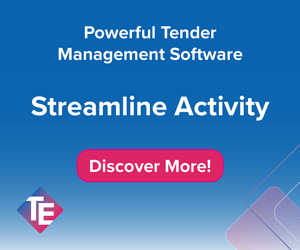Finding your next bid or proposal role can be challenging, especially in today’s environment when millions of people are competing for a shrinking pool of jobs. Some of the practices have changed. For starters, you may not be able to meet your interviewer(s) in person. Not seeing the office environment, you may not get a feel for the organizational culture. Also, in this virtual environment, connectivity issues or background distractions can skew how you are perceived. How can you convey that you are the right fit? What can you do to show your experience, skills and enthusiasm for the opportunity? How can you (pardon the pun) pitch yourself and stand out from the rest of the crowd? What are your unique selling points and your value proposition?
Hiring managers recognize that jobs are hard to come by, but it is their responsibility to find the right fit for their organization, even if those candidates may not appear to be the obvious choice. When hiring new team members, I often look for people with the right transferrable skill sets, not necessarily the “right” (in the traditional sense) experience.
Many of our team members didn’t start their careers in bids and proposals. While having industry experience is certainly a plus, we like team members with a wide range of experiences to ensure we are approaching our proposals in a unique way. This makes for more well-rounded thinking in our processes and creativity. Our team consists of former journalists, public relations practitioners, business analysts, human resources practitioners, a chef and more.
While I am certainly not the expert on every organization, I have found that candidates who exhibit the following eight qualities — regardless of whether they have proposal experience — thrive in interviews and on my team.
1. Recognizing the importance and urgency of proposals/RFPs. Steven Covey’s time management matrix allows you to focus on how to evaluate tasks by level of urgency and importance. Urgent items require immediate attention, while important ones contribute to your mission, vision, values and goals. Proposals often fall within the urgent and important category. So, it’s vital that candidates are acutely aware of how proposals impact an organization’s top and bottom line; understand the time sensitivities of the work that goes into creating a proposal; and can rally key stakeholders to support those deadlines.
- Interview tip: Share examples of how you met a time-sensitive deadline and/or how you helped others to meet a deadline. Showcase an awareness of how your work contributed to the success of your current or former employer.
2. Being strategic. The proposal process is not about us — it’s always about the client/prospect. Taking the time to understand the client/prospect’s needs and their key decision-making drivers are critical.
- Interview tip: Explain how you would approach learning about a client/prospect and develop a solution to meet their needs while differentiating the organization. Many organizations have small proposal teams that require members to wear multiple hats, from capture to completion.
3. Communicating clearly and often (both written and verbal). As a proposal manager, a significant amount of your time is spent on communicating with your key stakeholders about the proposal status, schedule, contribution requirements, win themes, etc. It’s also essential to coach your teams in executing strategic communication touchpoints with the client/prospect.
- Interview tip: It’s important to demonstrate that you can manage stakeholder expectations by communicating clearly and often. If your responses are vague or confusing during the interview process, that may be a sign that you are not a great communicator. Keep your examples simple so that anyone listening will easily understand them. Avoid using industry jargon because not every organization uses the same terms or works in the same manner.
4. Showcasing a creative approach. Time is perhaps the most valuable currency. It’s essential to find a creative angle to engage the audience, ensuring they spend their time reviewing your proposal. Whether that is through an interactive website, a video or an infographic, it’s important that you think outside the box to grab your audience’s attention and keep them engaged throughout your proposal response.
- Interview tip: Share examples of ways you’ve thought outside the box or have been creative at your current or previous place of employment. What’s in your toolkit that the interviewer may not have seen before but may be impressed with?
5. Emphasizing project management. This may seem like a no-brainer, but everyone has a different view on what good project management entails. The project manager of a proposal response is the engine driving the team forward and ensuring that everyone is clear on their roles and responsibilities through the completion of the project.
- Interview tip: Show your logic. Share how you would create a schedule that accounts for all the steps in the proposal process and how you have managed challenging proposals or projects in the past. Talking about your project management experience in a simple, straightforward way will be easy for the interviewer to digest.
6. Providing great service. We want to make the process as easy as possible for the stakeholders involved. Our team applies a service-oriented approach to pitching.
- Interview tip: Share what good service means to you. Also, ask the interviewer if you thoroughly answered their questions and if there is anything they had hoped you would cover in your responses.
7. Ensuring culture fit. Every organization has their own unique culture and it’s important that new individuals not only fit within the team but also fill any skill gaps. Our team members have different strengths and weaknesses, but we consistently learn and grow from each other.
- Interview tip: Weave into your responses what being a good team player means and describe your ideal work environment. It’s important to find an organization that matches your own DNA.
8. Exuding confidence. Keep calm, stay poised and show that you have it all under control. Stakeholders need to feel like they are in good hands with their proposal manager and that is a skill that can’t be taught. You either have it or you don’t. That will be clear from your interview presence.
- Interview tip: Ask thoughtful questions. Show the interviewer that you’ve been actively listening during the interview and are interested in learning more about the organization. Remember — the interview is for you to find the right role, as much as it is for the interviewer to find the right candidate.
As a pitches and pursuits manager for global law firm Hogan Lovells, Tracey (Serber) Silver, CF APMP, is responsible for managing the firm’s most strategic, high-value, global proposal opportunities. In 2018, she was named as one of the APMP 40 Under 40 and her team was recognized as “Proposal or Bid Team of the Year.” She is also the chapter co-chair for APMP Colorado.



Join the Conversation